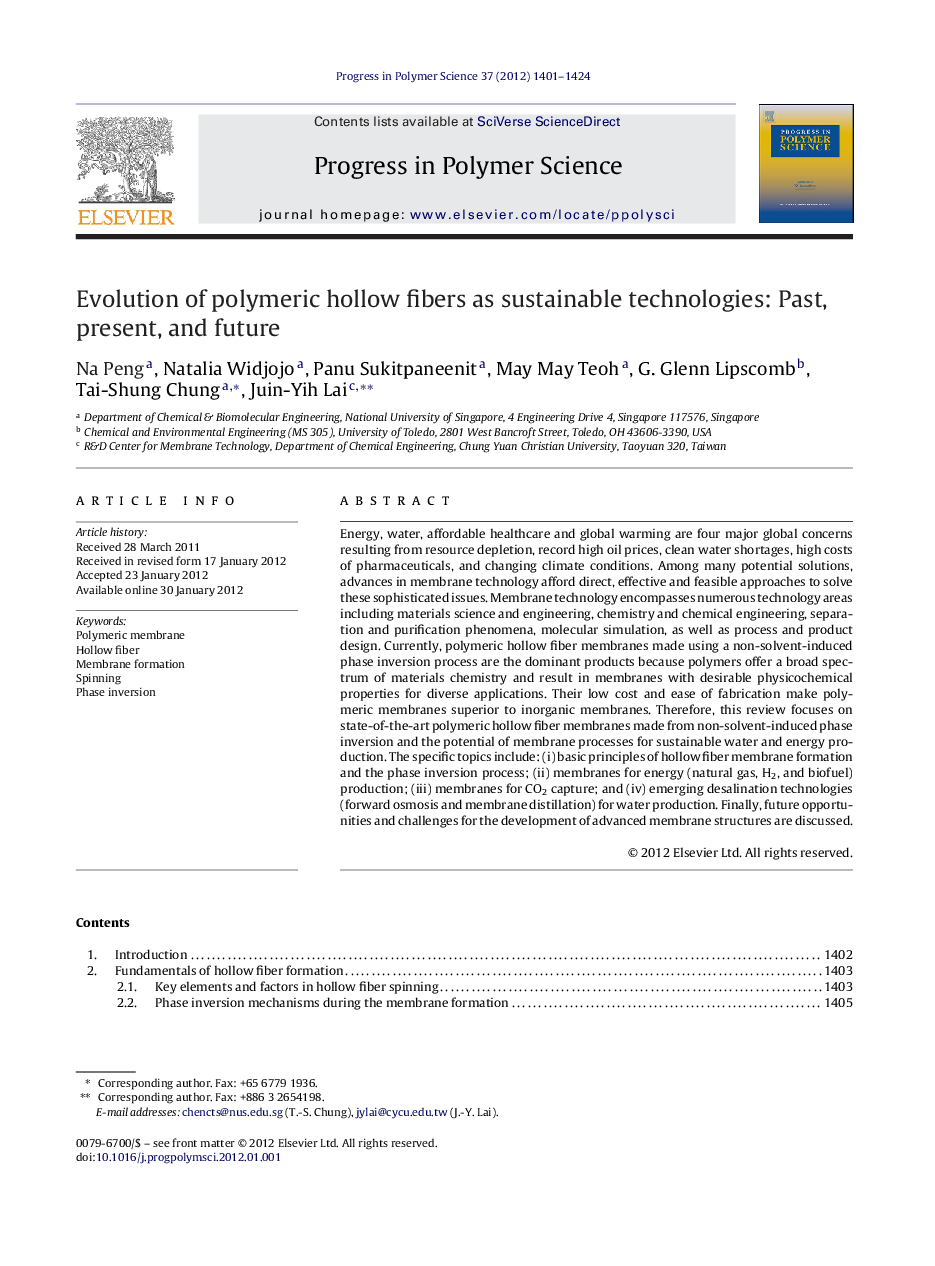| کد مقاله | کد نشریه | سال انتشار | مقاله انگلیسی | نسخه تمام متن |
|---|---|---|---|---|
| 5208417 | 1382573 | 2012 | 24 صفحه PDF | دانلود رایگان |

Energy, water, affordable healthcare and global warming are four major global concerns resulting from resource depletion, record high oil prices, clean water shortages, high costs of pharmaceuticals, and changing climate conditions. Among many potential solutions, advances in membrane technology afford direct, effective and feasible approaches to solve these sophisticated issues. Membrane technology encompasses numerous technology areas including materials science and engineering, chemistry and chemical engineering, separation and purification phenomena, molecular simulation, as well as process and product design. Currently, polymeric hollow fiber membranes made using a non-solvent-induced phase inversion process are the dominant products because polymers offer a broad spectrum of materials chemistry and result in membranes with desirable physicochemical properties for diverse applications. Their low cost and ease of fabrication make polymeric membranes superior to inorganic membranes. Therefore, this review focuses on state-of-the-art polymeric hollow fiber membranes made from non-solvent-induced phase inversion and the potential of membrane processes for sustainable water and energy production. The specific topics include: (i) basic principles of hollow fiber membrane formation and the phase inversion process; (ii) membranes for energy (natural gas, H2, and biofuel) production; (iii) membranes for CO2 capture; and (iv) emerging desalination technologies (forward osmosis and membrane distillation) for water production. Finally, future opportunities and challenges for the development of advanced membrane structures are discussed.
Journal: Progress in Polymer Science - Volume 37, Issue 10, October 2012, Pages 1401-1424